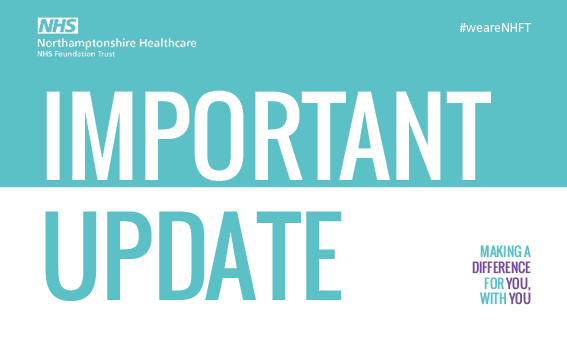Update: East Midlands Ambulance Service (EMAS) industrial action and FAQs

It is likely that 999 call handlers will be very busy and NHS 111 call centres will have fewer staff. Longer call response times are expected across the system. As a result, we are urging anyone with non-urgent care needs to first seek medical help from NHS 111 online.
Patients should continue to call 999 in a medical or mental health emergency – when someone is seriously ill or injured, or their life is at risk.
Impacted organisations have plans to deal with disruptions, such as industrial action, and have been working in partnership to ensure emergency and urgent services are prioritised.
If you have not been contacted and told otherwise, you are advised to attend appointments as planned. This includes GP appointments, which are not impacted by this industrial action.
There will be fewer ambulances on the roads during industrial action, with the NHS prioritising those with life-threatening needs. As a result, patients whose conditions are not life-threatening are unlikely to get an ambulance on strike days.
For more information about industrial action taking place at East Midlands Ambulance Service (EMAS), please visit the website.
For more information on when to call 999 and when to go to A&E, you can visit the NHS UK website.
Frequently Asked Questions
Q: What should people do if they need an ambulance?
A: Patients should only call 999 if there is a risk to life, or if seriously ill or injured. Ambulances will be dispatched where clinically appropriate.
For all other health care needs, support will be available through NHS 111 online or at a local GP surgery or pharmacy.
Q: What is considered an emergency, and will my 999 call be answered?
A: Patients should only call 999 if there is a risk to life, e.g. cardiac arrest, unconscious or catastrophic bleed, or if seriously ill or injured, e.g. stroke or a serious traumatic injury. Ambulances will be dispatched where clinically appropriate.
Q: How many fewer ambulances will you have responding to emergencies in the East Midlands?
A: It is not possible to say how many colleagues will be participating in industrial action as it is a personal decision made on the day of action by individual members of the trade union which has the mandate to strike.
East Midlands Ambulance Service (EMAS) has been working with its local and national trade union representatives to agree exemptions for patients which some GMB members may still attend during the period of industrial action.
Operational teams have been carefully planning with an aim to maximise the number of ambulance staff and volunteers available to respond to patients on the days of industrial action to seek to ensure that we continue to be able to respond to life-threatening or emergency situations.
Q: If the ambulance is taking a long time to arrive, what should I do?
A: It is likely to take longer than normal to get to patients on the day of industrial action because there will be fewer ambulances available.
Emergency response 999 control rooms will carefully assess and prioritise an ambulance response for those who need it most, and this may only be where there is a threat to life.
You may be asked to make your own way to hospital or a medical treatment centre if it is safe to do so.
If you are waiting for an ambulance, please do not call 999 again to ask for an updated estimated time of arrival for an ambulance.
You should only call 999 again if you wish to cancel the ambulance because you are making your own way to hospital, or if the patient’s condition has significantly worsened.
Q: Will my non-emergency patient transport be impacted?
A: Some Non-Emergency Patient Transport Services (NEPTS) staff are members of the GMB union and therefore may take part in industrial action on the planned strike day in Northamptonshire.
NEPTS planning teams have been preparing to minimise the disruption to patients during this period of industrial action.
Patients should expect their booked routine transport to arrive as normal and should attend their appointments as normal, unless contacted directly by the hospital or the ambulance service to inform them of a cancellation.
Throughout this period of industrial action, transport to chemotherapy and kidney dialysis appointments, as well as hospital discharges, will be prioritised to ensure patients continue to receive the life-saving treatments they need.
Any patients with additional questions can contact the NEPTS booking telephone line on 0300 300 34 34.
Q: Do I need to cancel my transport and hospital appointment for the days of industrial action?
A: No. Patients should expect their booked transport to arrive as normal and should attend their appointments as normal, unless contacted directly by the hospital or the ambulance service to inform them of a cancellation.
Q: If staff are already on shift and treating a patient when the industrial action begins, will they just stop working?
A: If delivering patient services, staff must complete the patient call they are on before they are permitted to stand down; this includes in call centres as well as direct patient care.
Q: Will EMAS be receiving support from the military?
A: There are no plans for military support at this time.
Q: Where will the picket lines be held?
A: Picketing is likely to take place at the ambulance stations across the East Midlands where union members who are participating in industrial action are based.
Q: Can members of the public join the picket lines?
A: No – not as part of official picketing.
However, they could be present and exercising their human right of protest despite not being part of the official picket.
The Code of Practice on Picketing states ‘anyone seeking to demonstrate support for those in dispute should keep well away from any picket line so as not to create a risk of a breach of the peace or other criminal being committed on that picket line.’
Q: Can EMAS pay its staff more money and stop the strikes?
A: No. NHS Agenda for Change pay levels are agreed at a national and not at a local level and are therefore negotiated nationally for NHS employees.

